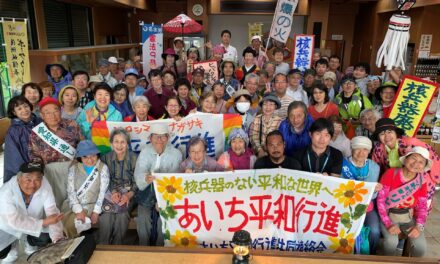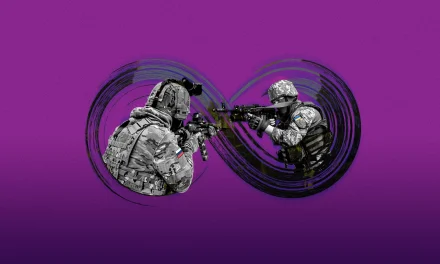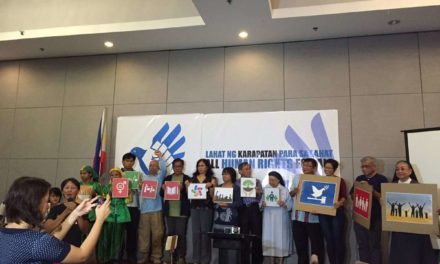No justice, no country.
These were the words of a young girl who was interviewed on the BBC while she was participating with thousands of others in protests against the justice system of Belgium after the removal of an investigator who was conducting inquiries into the deaths of two little girls who were starved to death after sexual abuse. For people of Belgium it was a traumatic moment when they discovered that the system that they have trusted was fatally defective and fundamentally unjust. The people realised that the nation that they have believed in was a myth behind which sinister forces sneered at them.
On this occasion we may extend this young girl’s statement to say ‘No justice, no regionalism’.
The European Union would have very little meaning without the European Court of Justice. Even beyond the court are fundamental beliefs in justice and a sacred place given to liberal values. What is Europe without these bedrock beliefs and values? What is any affluent country without a deep and ultimate commitment to justice? It is no human society, it is only an animal farm. When we talk of ASEAN and APEC it is necessary to ask what is the concept of justice on which it is founded. Is it on the beliefs on which the animal farm is built or is it built on the basis of equal dignity of all? This is not just a question for ASEAN and APEC, it is also for affluent countries. Do these countries want the rest of the world to be animal farms so that they can best exploit them? That was the principle followed in colonial times. Has there been a change? Does the international community accept the principle of equal justice for all. On the other hand do the leaders of ASEAN and APEC countries share a common concept of justice for all the peoples of the region. If such a concept is not there what is the binding link. Some might say it is economics. Is there any economics separable from its own conception of justice or injustice. Where and when did such economics exist?
The question then is, what is the injustice that the ASEAN , APEC or any other regional arrangement is willing to tolerate? In ancient society injustice to slaves was not considered as lack of justice. In Indian society absence of justice to those persons called untouchables was not considered injustice. In modern Burma absence of justice to political opponents is not considered injustice. In Pol Pot’s Cambodia murder of millions was not considered injustice.
There is no neutral space between justice and injustice. There is only a tolerable extent of injustice that each society is willing to accept. What then is the injustice that the APEC is willing to tolerate?
There is no commonly agreed concept of justice in this region. In fact what we have is only an agreed concept of injustice. And this is the heart of the matter.
That the poor are of no concern in trade arrangements means that what happens as a consequence of trade arrangements to the poor is of no concern. That the situation of the poor could be worsened by these arrangements is not disputed by anyone. The debate is about whether such
worsening should be discussed, considered and remedied. The approach of the APEC is that its projects should be bulldozed through whatever consequences it may have to the people who are affected by this. What the people are demanding is adequate information to see how they are affected by the new arrangements, and adequate debate leading to constructive resolution of conflicts arising out of development projects. Their demand thus is for basic justice and basic democracy.
This leads us to the question, is secrecy a necessary or a legitimate requirement of trade? What type of trade requires secrecy? Let us take some examples. The type of commerce that went on at Union Carbide pesticide plant in Bhopal required secrecy . The people learned about it only when there was a tragedy one day that caused massive destruction. There have been many projects that have caused massive dislocations of people. The planning for these has been done secretly so that the people would not have adequate time and opportunity to protest. Such deprivation of the right to complain and protest is a basic denial of justice. The other issues that come up in such dealings are secret arrangements to sell national resources, lands, assets and so on. If people’s rights to know, to discuss and to decide on these matters are taken away from them, the very basic notion of representative democracy itself is lost. Are we going back to the times when it was said that people are not mature enough to decide things by themselves. This would mean that some trade representatives are in a better position to run our nations. Indeed this what is taking place.
Let us not forget the fact that forced economic reforms are often accompanied by violence. There is so much evidence of this in the Asian region. Planned extra-judicial killings have been part of the political schemes introducing new economic policies in many countries. Indonesia in 1965, the Philippines in Marcos’ times, Pakistan under the military rule of Zia Ulhaq and just now the President of this country is blaming the ousted Prime-minister for encouraging and inciting the police to engage in extra- judicial killings of tens of thousands of people in the country.
Nobel Peace Prize laureate, Bishop Belo, is complaining that the Indonesian soldiers treat East Timorese people like dogs. The incident relating to the East Timor solidarity meeting which was to be held on 10 November, 1996 led to the use of organised mob violence by the Malaysian authorities. Thus new economic and trade agreements could lead to political arrangements that create situations of direct and indirect violence on the people. Therefore, the people have a right to be informed about these arrangements in the greatest possible detail. Colonialism was just trade as far as many who engaged in those expeditions were concerned. However, trade required killings and making new political arrangements. Everyone knows what happened. Thus it is no good argument to say that there is a thing called pure trade and that people need not know anything about it.
The transformations that are taking place in the political field are alarming. The role of the state is getting reduced in every area. The only areas in which it is increasing is the area of control of the people so as to allow the business interests to do whatever, in which ever way it likes. In most instances it does not play the role of balancing the conflicting interests. The intermediary institutions of the state that provided the people even a limited possibility of making complaints of grievances are being removed. As every important matter is decided at trade discussions, mostly conducted on golf courses, the relationship between the state and the individual becomes more of a ritualistic exercise.
Pressure groups such as trade unions and other organisations that have been built by the people have no one to deal with directly. The real decision makers can move from one golf course to another, and can remain anonymous . The Internet facilitates their communications. The person who talks to you on the TV as a leading personality of the government, who sometimes even entertains questions, is only an actor and often is a Mr No Body. One day people overthrow a Mr Bad Guy through the use of their strength and the next day they elect a Mr Nice Guy. In no time he too serves the same masters and continues with the same policies which the people are told are unalterable. The people as individuals and as a group feel powerless and helpless.
The result of this alienation is the great gap that is growing between the state and the people. This widening gap can have ominous consequences for the future. One such consequence is the enormous developments in the civil society irrespective of the controls attempted by the state. Perhaps the most positive development in Asia is in that direction. The recent developments in civil society in Indonesia, South Korea, Cambodia, India and several other countries have resulted in huge political events. The growing women’s movement is likely to have an enormous impact in almost all Asian countries.
Taking the initiative to struggle for a society with a commonly agreed concept of justice has become the responsibility of the civil society movements. Such a concept of justice must have the following elements.
* Combination of democratisation and improvement of living conditions for all the persons. When living conditions issues are separated from democratisation issues, an ideology can be created to justify repression in the name of development. On the other hand when issues relating to democracy are separated from issues relating to living conditions, only a formal democracy can result giving rise to corruption of the democratic process itself. The ultimate result of both approaches is the same; an authoritarian regime that has no respect for the common good.
* Genuine respect for every one. This means respecting every one’s rights to be informed. This is central to any type of respect in modern society. Secrecy amounts to contempt. It is the ultimate form of inequality.
* Businesses that benefit every one. In the words on Daw Aung San Suu Kyi, We advocate the kind of business which benefits the whole country.
* Hunger, wars, civil wars, the collapse of the rule of law and anarchy, existing in this region are human-made and directly related to the prevailing economic arrangements. It is only on the basis of a commonly agreed concept of justice that these can be resolved and peace and security of the region can be guaranteed.
Human rights in our times means the basic norms of justice. This is so both in the civil and political rights sphere and economic, cultural and social rights sphere. Unrelated to fundamental justice issues human rights have no meaning or to be more exact have only a distorted meaning. It is unfortunate that sometimes there seems to be a reluctance to recognise this distorted nature and even an attempt to reduce human rights to an ambulance function.
Belgian society rose in revolt against their justice system last month. The struggle of the Belgian people to set things right has begun. It is time to rise against the concepts of injustice commonly imposed upon the Asian region and to struggle to establish common norms of justice acceptable to the conscience of every one.
* Basil Fernando is the executive director of the Asian Human Rights Commission and Asian Legal Resource Center









